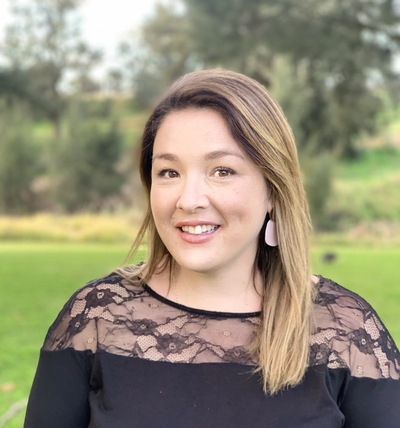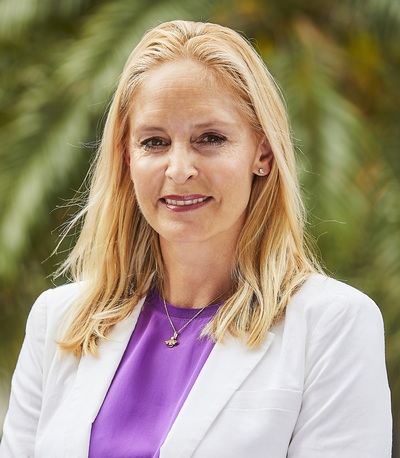What do women in health care choose to challenge this IWD?

This International Women’s Day, four inspirational women tell us what #ChooseToChallenge means to them and women in health care.
Francesca Pinzone, Co-Founder, Chief Operating Officer, UMBO

“In this year of change and hope for the future, the International Women’s Day (IWD) theme of #ChooseToChallenge presents an incredible opportunity for women to advocate for women’s rights, and pledge to take a stand and call out gender bias and inequality. There is a strong foundation and legacy we can build on to ensure that women’s rights are at the forefront of decision-making and that women’s voices are heard, but we have more to do to ensure that women feel our collective support when they are at the decision-making table.
Women have, over many years, been the dominant gender upholding the roles within health care in areas such as nursing and allied health. There are a number of factors that have influenced this, but the ongoing hierarchical structure of the health field has often meant that ongoing discrimination due to gender is perpetuated in the healthcare system — and often it merely relegates these roles and the women in them to simply ‘caring roles’, without looking at the experience and qualifications that lie behind them.
That said, this problem is not just limited to nursing and allied health — studies demonstrate a significant gender pay gap in medicine between male and female doctors in Australia. Let’s also consider the fact that male surgeons are still often titled ‘mister’ rather than doctor — a tradition that stems from the 1800s. Surely in 2021 we have moved on from this.
Nurses and all health professionals play a crucial role in patient advocacy and helping patients navigate the health system. How can we take that advocacy voice we use so confidently for our patients and #choosetochallenge the role of women in health care? How can we navigate the system to ensure that we advocate for equal rights and equal respect? These are tricky questions and ones that require our persistence and consistency — let’s call out when we see discrimination and bias, let’s understand the intersectionality of gender and race, and let’s use our voice and #choose to challenge for women’s equal rights. We can do it for our patients, so we can do it for ourselves.”
Mary Malak, CEO of Humanity Matters

“On a day that celebrates equal rights and diversity, #ChooseToChallenge to me means taking a stand against stigmas that exist in our society and challenging the establishment. At Humanity Matters, my work with marginalised young people means I see first-hand the vulnerable members within our community who are neglected and invisible within health and support services.
Often times, many marginalised people are struggling with underlying mental health challenges and finding their identity within society. This, coupled with existing stigmas around mental health, lack of community and, for vulnerable young people, an inability to trust new adult figures, means many are not getting the critical services they need.
It is time the health sector address the barriers that discriminate against different members of our community and work towards ensuring our healthcare services are accessible, inclusive and wide-reaching. Our challenge is to redress misconceptions and stigmas while creating the right support for all members of society — regardless of gender, race, age, socioeconomic status or background — so that everyone can have their voices heard in the healthcare system.”
Ricki Smith, CEO, Access Care Network Australia

“I have spent most of my career working to make complex systems like health and aged care better and easier to navigate. What I’ve learnt in that time is that change only happens once someone knowingly takes that first small step, even though it’s scary or risky. With each step comes momentum and with momentum comes progress. It is easy to think of the health system as being too big or too complex to make a difference. But I am inspired every day by the courage and resilience of our clients. Be it the 90-year-old woman racked with pain who still volunteers at her community centre because her ‘customers’ need her, or the young woman who suffered a brain haemorrhage at 21 but is now thriving because she never stopped believing in the power of goal setting. These ‘ordinary’ women doing extraordinary things are what give me the courage to take that first small step. So in 2021, I choose to challenge myself to keep on taking those small steps towards progress.”
Bianca Shapiro, Partner of MyCareSpace

“To embrace the theme #ChooseToChallenge is to stand against the inequalities that continue to plague our communities. For the healthcare sector, I hope this day is not only a celebration of the remarkable work of women in the field but also a call for us to keep innovating for a holistic healthcare system that does not discriminate against any members of our society.
Through my own work at MyCareSpace, building a platform that connects people living with a disability to essential support and services, every day I am reminded that there is still some way to go before true equality in health care is realised. Women with disabilities in rural communities of Australia, for example, continue to face barriers such as discriminatory attitudes that impede their ability to access the health services they need to optimise their health and wellbeing.
Our healthcare system needs to recognise intersectionality, as the medical model cannot be one size fits all. Different members of our society have unique social, emotional and developmental needs. These factors can shape how one accesses health care. In 2021, I choose to challenge myself and the healthcare community to actively participate in advocacy efforts to promote equitable access to health care and disability support for all Australians.”
Some patients wait 6 years to see a public hospital specialist. Here's how to fix this
Australian research spanning more than a decade suggests there are ways to reduce waiting lists...
Reusing medical equipment is good for the planet. But is it safe?
A new study tested replacing just one kind of item — single-use absorbent pads, known...
Stewardship and sustainability: environmentally minded medical products
Australia's health sector produces twice as much carbon emissions as aviation. But with...




![[New Zealand] Transform from Security Awareness to a Security Culture: A Vital Shift for SMB Healthcare — Webinar](https://d1v1e13ebw3o15.cloudfront.net/data/89856/wfmedia_thumb/..jpg)
![[Australia] Transform from Security Awareness to a Security Culture: A Vital Shift for SMB Healthcare — Webinar](https://d1v1e13ebw3o15.cloudfront.net/data/89855/wfmedia_thumb/..jpg)




